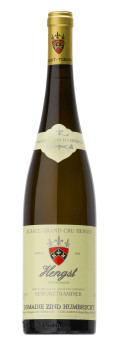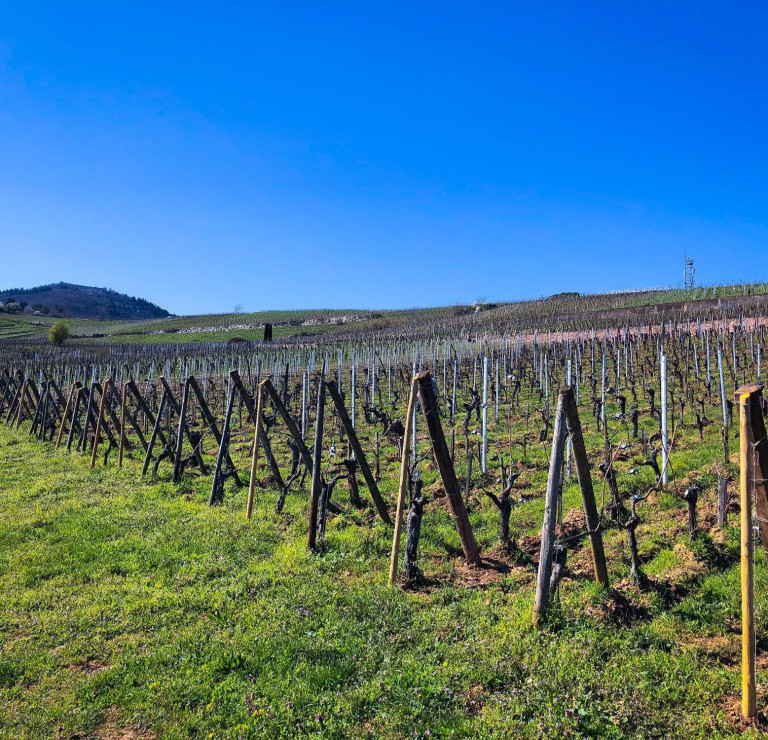
Technical presentation
| Bottling : | September 2008 |
|---|---|
| Acquired alcohol : | 15.5° |
| Residual sugar : | 26.0 g/l |
| Total acidity : | 2.7 g/l H2SO4 / (4.2g/l Tartrique) |
| pH : | 4.0 |
| Optimum tasting : | 2011-2032+ |
| Average age of vines : | 56 years |
| Terroir : | Grand Cru Hengst |
| Sweetness index : | 3 |
| Soil : | Marl-Oligocene calcareous, South/South East facing, medium/steep slope |
Description of the wine Gewurztraminer Grand Cru Hengst 2007
My grand father Emile Zind started to make wine from the Hengst vineyard in the late 1940’s. It was always one of his favourite vineyards. Today, we cultivate a vineyard that he planted in 1957 and another one my father acquired in 1978, but which planted before WWII. These two parcels are ideally located in the middle of the Grand Cru and enjoy a dry warm climate, typical of central Alsace, but also a soil which contains just enough marl to bring the balance the powerful calcareous base rock needs. Without some marl, the soil would be to warm and burn the acids of the grapes too quickly and would also allow a too precocious ripeness. The Hengst is characterized by slow ripening gewurztraminer grapes in a warm climate. These are hard conditions to find around the world, but this is why this grape variety is so well integrated in Alsace. The 2007 eventually developed beautiful botrytis, which was eventually selected to produce an SGN. This wines comes from grapes that were mostly healthy, hence a fast and furious fermentation… very Hengst style.

Tasting notes
02/2009 : The nose says it all: this is no easy rose water gewurztraminer, but a powerful, mineral/spicy packed wine. As always, this vineyard doesn’t allow the wine to be expressive on the nose in its youth, but on the palate, it is all intensity and length. The flavours are mineral driven, the sweetness is pushed to the background and the vineyard is there up front. It is a very long wine and would certainly seem too rich for most if the structure and ripe acidity wouldn’t bring certain elegance on the finish.

The Hengst Grand Cru of Wintzenheim
The Hengst was first mentioned in the 9th century in an endowment of the Murbach Abbey. The lord of Haut Landsbourg as well as the bailiff of Kaysersberg shared the feudal rights up to the Great Revolution, whilst various noble families, abbeys and the bourgeoisie of Colmar exploited important parcels.